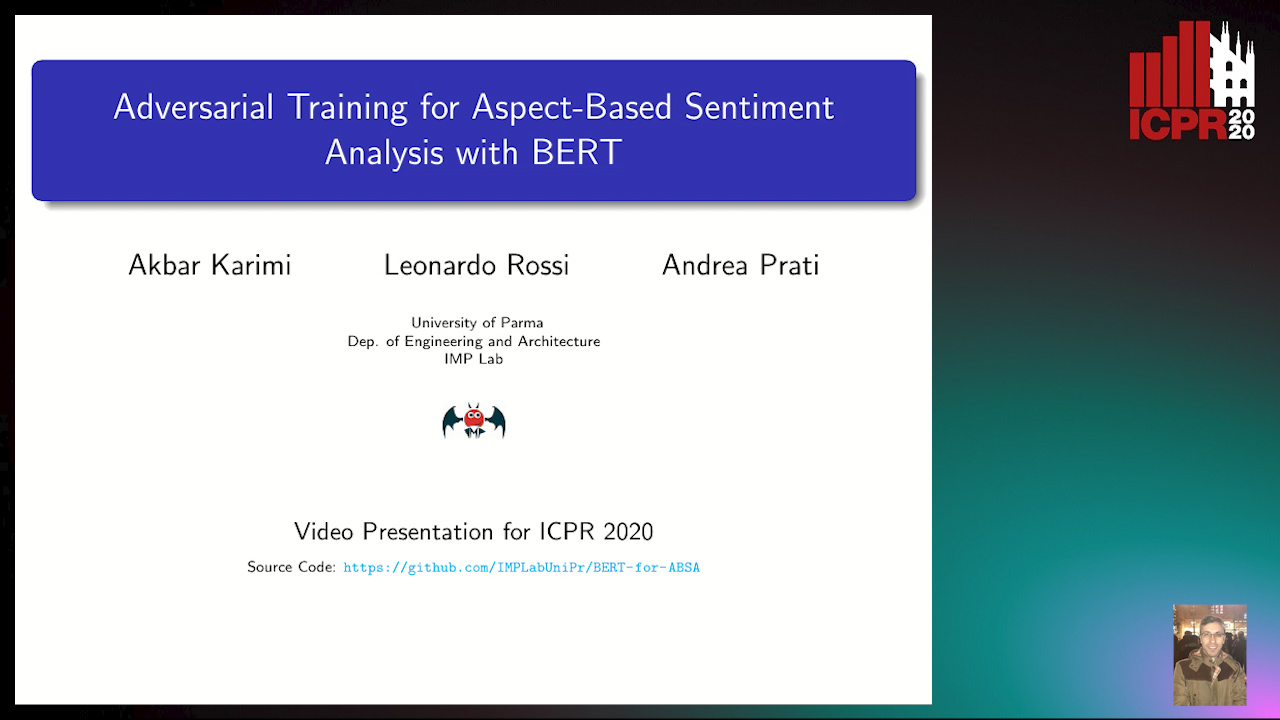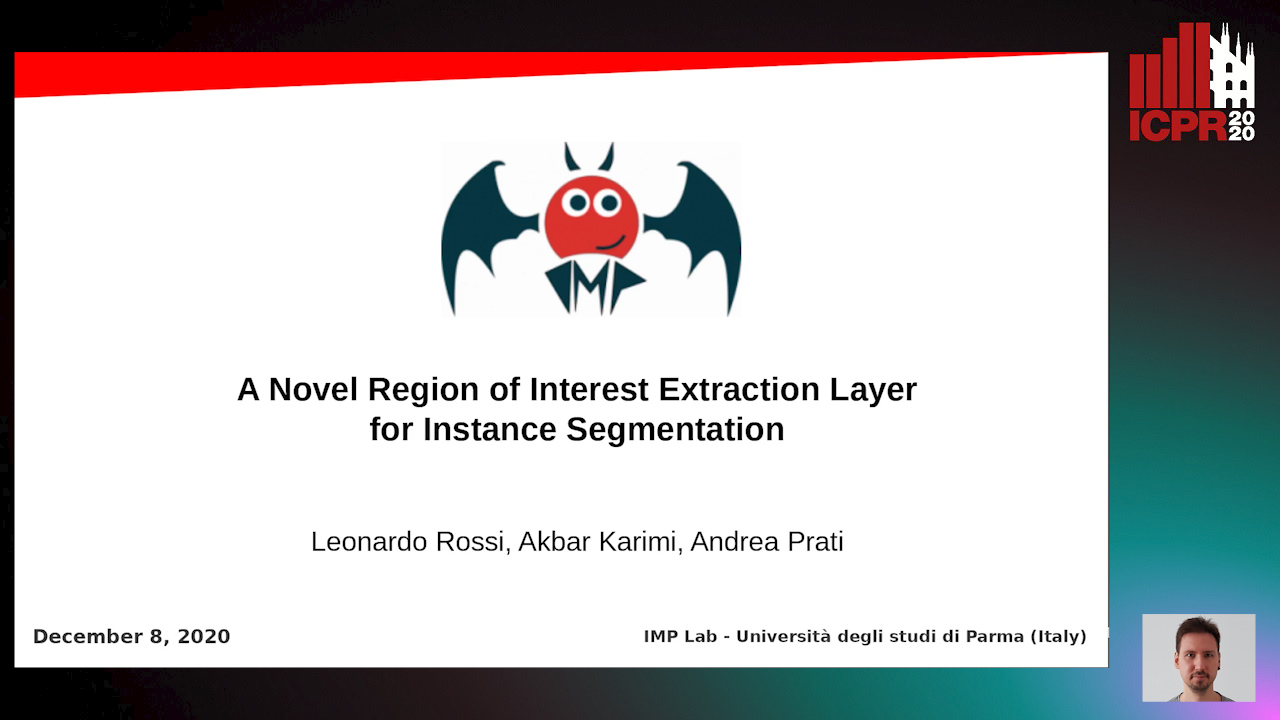Akbar Karimi
Papers from this author
Adversarial Training for Aspect-Based Sentiment Analysis with BERT
Akbar Karimi, Andrea Prati, Leonardo Rossi

Auto-TLDR; Adversarial Training of BERT for Aspect-Based Sentiment Analysis
Abstract Slides Poster Similar
A Novel Region of Interest Extraction Layer for Instance Segmentation
Leonardo Rossi, Akbar Karimi, Andrea Prati

Auto-TLDR; Generic RoI Extractor for Two-Stage Neural Network for Instance Segmentation
Abstract Slides Poster Similar